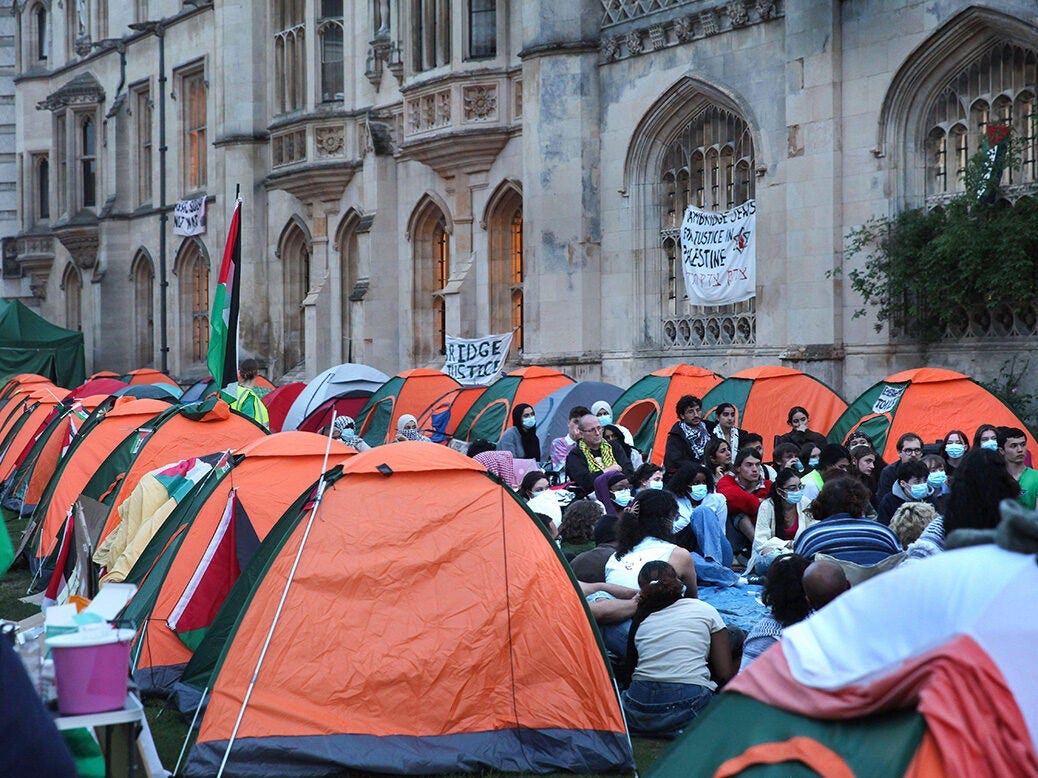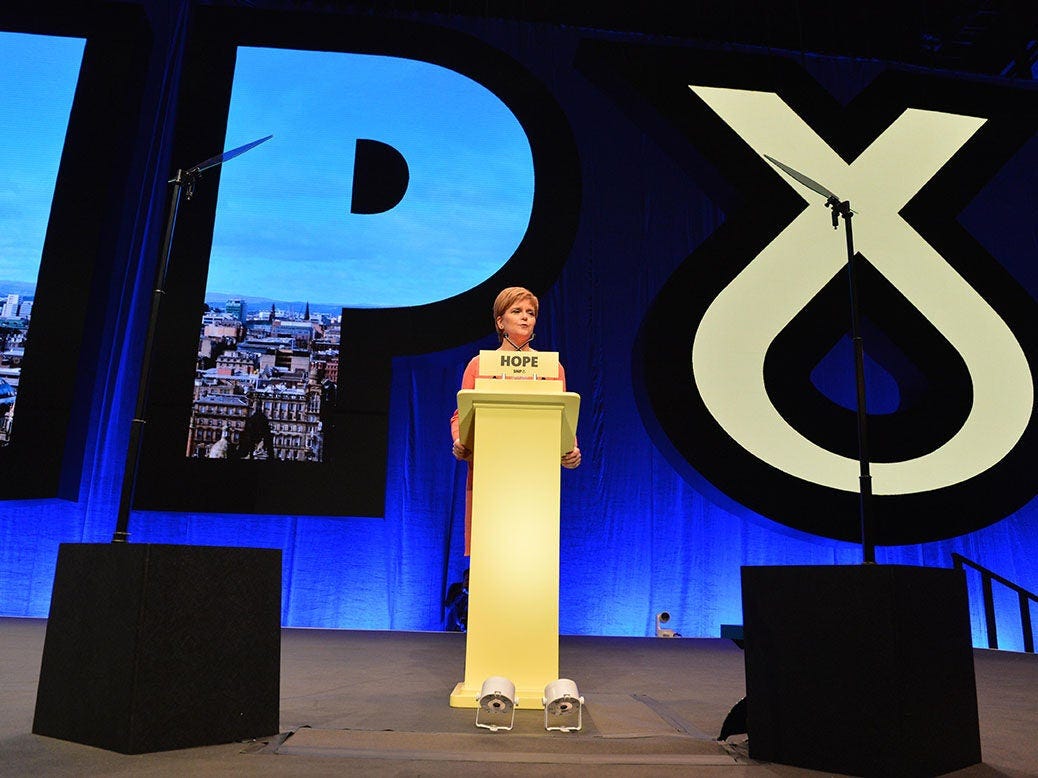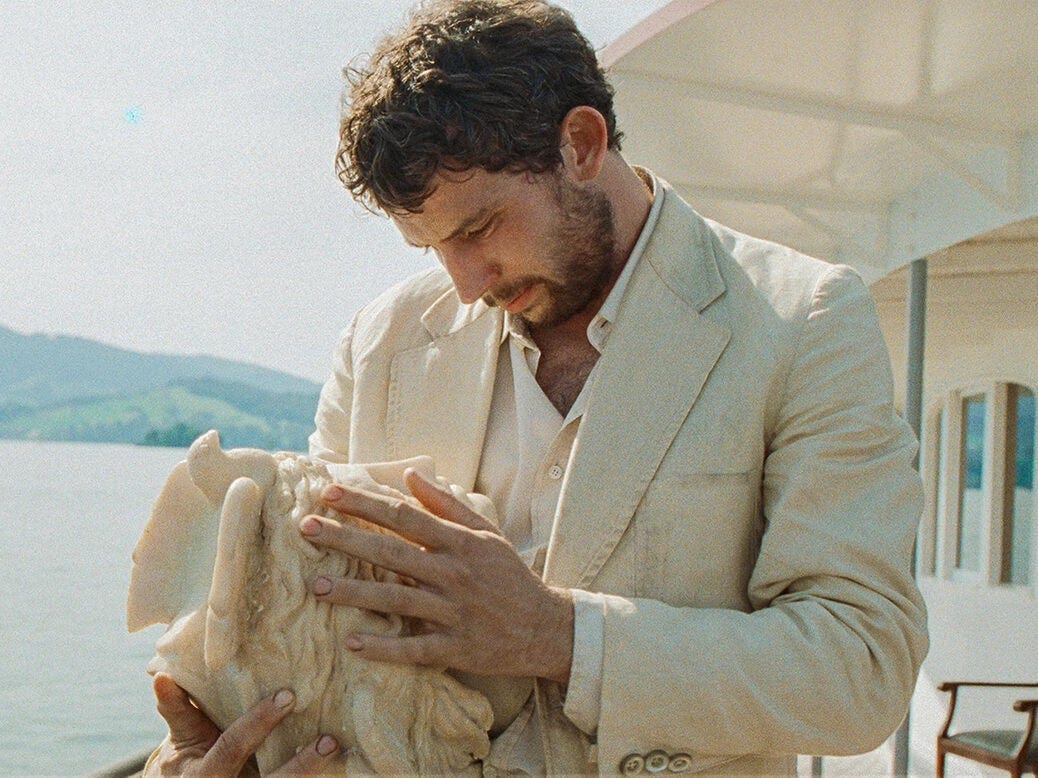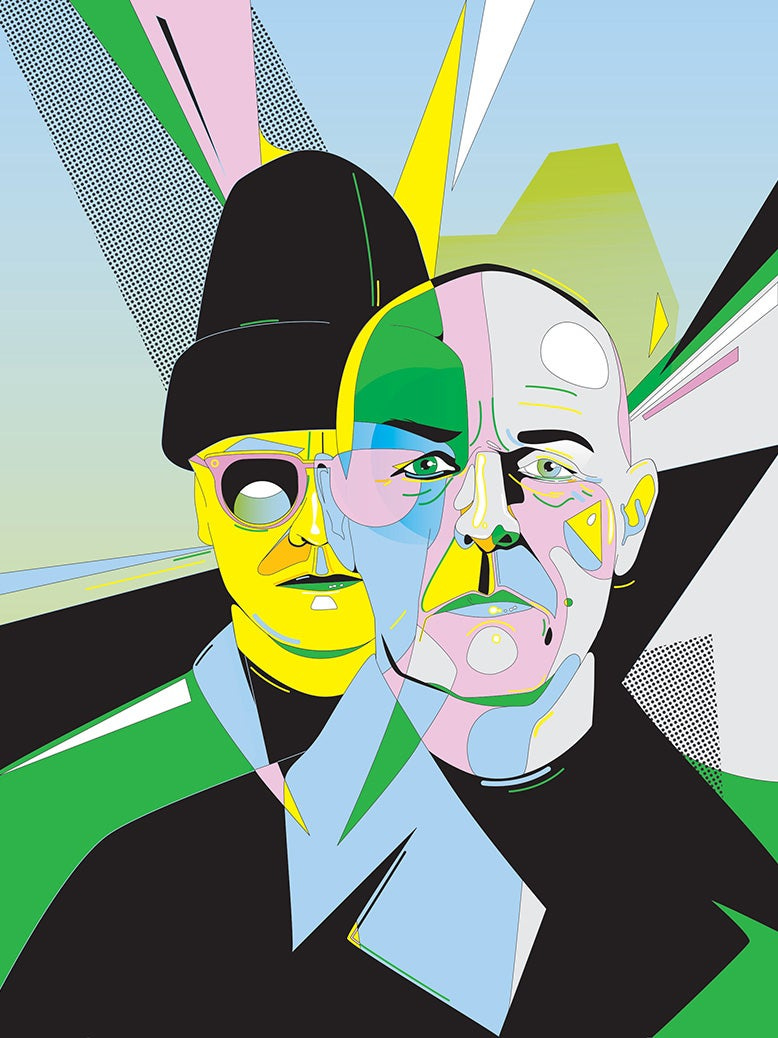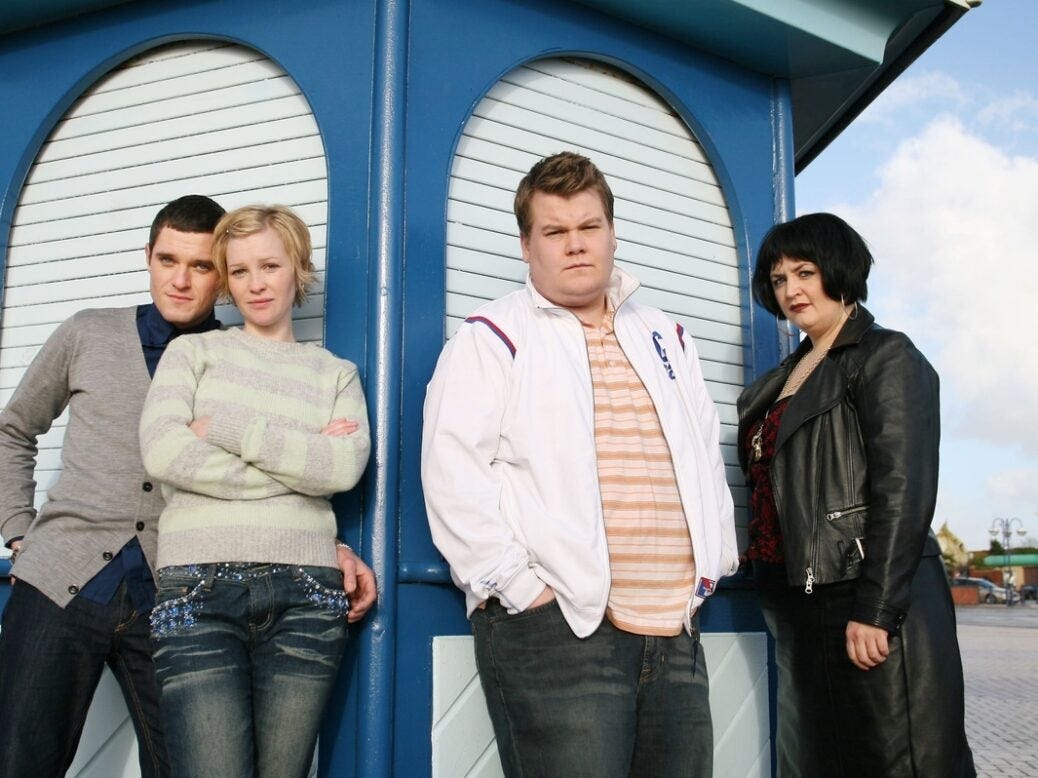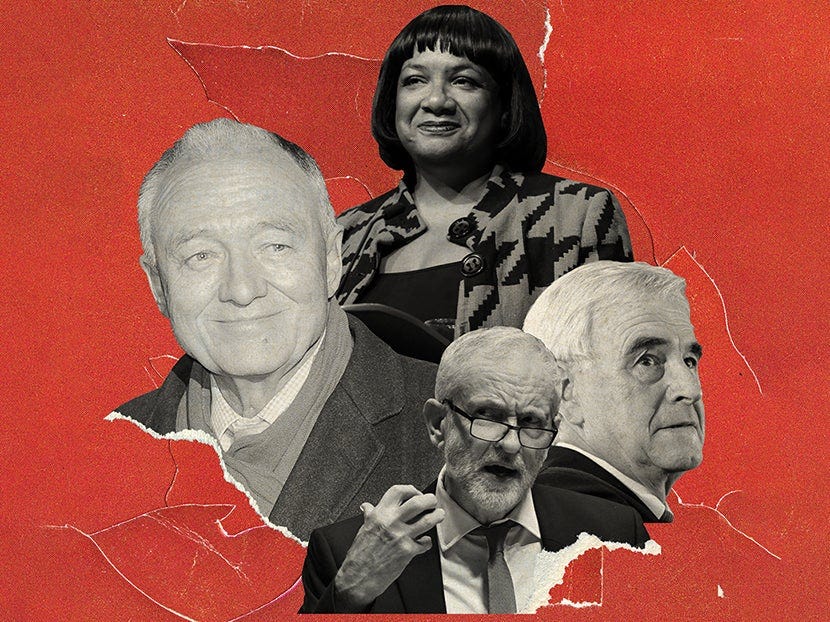The Saturday Read: #60
Inside: Rafah, Cambridge, Cass, internet villains, two cultural classics, and a novel.
Good morning. Welcome to the Saturday Read, the New Statesman’s weekly guide to politics, culture, books, and ideas. This is Harry, along with Jason, Pippa, George and Finn McRedmond, a regular contributor of ours who has joined the NS.
I went to Cambridge with George this week to visit its nascent protest movement. I found a microcosm of the neurotic internet brought to life on a small patch of grass. More below. First, Jason reports from DC, where he has been hanging out with Britain’s next foreign secretary. After that: this week’s picks. Also: summer is here.
I observed the continuing Tory pantomime – expertly analysed by my colleague Rachel Cunliffe in our magazine cover story – from afar this week as I have been in Washington DC, with David Lammy, Labour’s shadow foreign secretary. Britain’s politics, as we know, are juvenile: just reflect on the absurd antics in the House of Commons over recent days. But so is the way we treat our politicians.
Lammy arrived in Washington DC alone, having taken an early-morning connecting flight from Newark (parliamentary pressures meant he missed his planned flight to Dulles Airport). In DC he was met by Ben Judah, his adviser and ideas guru, who had travelled down from New York. Lammy had flown economy class and had no entourage, no diary secretary or personal assistant. No driver was waiting for him. His schedule in the Beltway was unrelenting but he used his time well – to network, to listen and to learn. He travelled around town in various Ubers.
A passionate liberal Remainer during the protracted Brexit wars – he was a prolific and belligerent tweeter – Lammy is also a self-described communitarian. As Britain’s chief-diplomat-in-waiting he wants to build bipartisan alliances in the national interest. And, as the first black Briton to attend Harvard Law School, Lammy has long-established family, personal and professional relationships in the United States. When he arrives in the capital senior politicians want to meet him, both Democrat and Republican.
Keir Starmer knows this, and it was one reason he wanted Lammy to lead for Labour on foreign affairs. Lammy was less sure when first approached. “I needed time to think about it. I have young children and there would be a lot of travelling,” he told me. But he was persuaded that it would be the right role for him at the right time: he is an Atlanticist and internationalist but accepts that the so-called liberal order has fragmented in what he calls “a newly dangerous world”.
On Wednesday morning Lammy gave a short speech at the Hudson Institute. He shared a platform with Jim Risch, a hard-line Republican right-wing senator and Beltway fixer. Before his right-leaning audience, Lammy described himself as a “good Christian boy” and a “conservative” Labour politician. He embraces ambiguity and paradox. In his recent Foreign Affairs essay he wrote that “progressive realism” would inform his approach to foreign policy. The phrase has resonated in Washington. “I like the realism,” Senator Risch quipped, “but not the progressive part.” The concept of progressive realism is inchoate. Is it a form of liberal universalism? Or an aspiration to have a foreign policy based on the social and economic rights of the British people? We shall find out before too long.
In his Hudson Institute speech, Lammy said: “I’m a man made of the Atlantic. My parents were from the Caribbean, their siblings spread out from New York to London. And I share something deep with millions of Americans. Because if I have the privilege to be foreign secretary, I will be the first to be able to trace his lineage back through the Atlantic slave trade.” The next afternoon, at a private meeting, Lammy was celebrated as a role model and inspiration by Hakeem Jeffries, who succeeded Nancy Pelosi as the minority party leader in the House of Representatives in 2023.
Lammy is an unusually interesting politician. He has what Paul Gilroy calls a kind of “double consciousness”: he knows who he is and where he is from and what he represents. And he is a realist: he wants to pursue liberal enlightened goals in a world that doesn’t follow liberal enlightened rules. “The world is what it is,” he said to me as we travelled in an Uber taxi to the White House. And then he repeated the statement: “The world is what it is.”
1—“The goal is total victory.”
On Monday Israel dropped leaflets all over Rafah, warning of invasion and advising evacuation. Rafah is the last city on the Gaza Strip. To where are the Palestinians in Rafah meant to evacuate? Bruno Maçães, who has been clear-eyed on this conflict from the start, thinks this may turn out to be an error of historic proportions. GM
By Monday evening, Israeli warplanes were carrying out fire belts on several neighbourhoods across eastern Rafah, preparing a ground invasion that did in fact take place in the early hours. Scores of wounded and dead started to arrive at the improvised medical facilities that still survive in Rafah. Israeli military vehicles arrived at the Rafah border crossing with Egypt, seizing control of the area. Egyptian television showed images from the Egyptian side where gunfire was clearly audible. The first phase of the dreaded Rafah assault had started and it immediately endangered the continuation of the aid flows entering Gaza through the crossing. Joe Biden has always insisted he is firmly against Rafah, a shorthand for the invasion. Well, was this Rafah?
2—“‘The list goes on and on,’ Raptor told me. Indeed it does.”
Cambridge has more than 20,000 students. At lunchtime on Thursday, 41 of them were encamped on a patch of lawn along King’s Parade, outside one of its grandest colleges in the centre of town. I went up for the day with George to find out why. HL
“We have plenty of information on billboards,” said one taciturn student wearing a high-vis jacket and sitting on the encampment wall. “We encourage you not to ask questions,” said another, who was finding her role as a police liaison uneventful.
A trio of staff observers were equally reluctant to talk. “We are here to protect the free speech of the students,” said one, a young Middle East scholar in a white T-shirt and a loop earring, as he discouraged me from asking any student other than “Raptor” anything at all. Another staff observer, a woman clad in a Covid-era face mask and sandals, declined to give her name, but greeted my attempts to ask her about the encampment with disdain. You will find more casual civility at a Trump rally.
3—“Do I regret doing it? Absolutely not.”
After four years of work, the Cass Review into gender identity services for children was published in April. Hilary Cass took on that daunting brief in the midst of a successful career as a paediatrician. Why? She spoke to Hannah for her most extensive interview yet. GM
Had Cass ever seen anything like it in her career in medicine? “I can’t think of an example… And that’s why I think the single most generalisable message from the report is recommendation 32”, which stresses the importance of rules to prevent the creep into clinical practice of treatments that have no proven benefit, while also not stifling medical innovation. “If puberty blockers had been a new drug, they’d have gone through very strict controls before being prescribed. The weakness in this instance was that they were already licensed in children but for completely different use [the treatment of precocious or early puberty], for which they are totally safe… It should have been subject to greater scrutiny.”
4—“Scotland shows a hegemonic hyper-liberal regime to be a chimera.”
Will Labour heed the lessons of Scotland? Nicola Sturgeon has much to answer for, writes John Gray. She, not Humza Yousaf, set the SNP on its present course of failure. FM
Hyper-liberal ideology is not about to lose its institutional power in education, the media and the apparatus of government. In practice a scheme of outdoor poor relief for the distressed middle classes, it also supplies a belief system that relieves them of the burden of thought. Not the least of its advantages is that incessant chatter about race and empire distracts attention from the systemic dysfunction of Western capitalism.
5—“‘White women, eh!’ was the knowing refrain.”
In the wake of 2018’s #MeToo reckoning, and 2020’s Black Lives Matter protests, the progressive left in America identified a new villain: white women. The instinct to demonise this group may emerge from the left, but it has been abetted by the hollowness of the liberal centre. FM
Eight years on from the reckoning of 2016, the American left is as divided as ever. On one side sits a progressive cohort with a tendency for total self-destruction: chastising mistakes, ostracising the ideologically impure, martyring themselves at the expense of material improvement. And on the other side, there is a hopelessly out of touch liberal establishment that believed simply electing a woman president was synonymous with good governance.
Poll of the week
This week Joe Biden’s White House threatened to cut off weapons to Israel if it invades Rafah. This is not the first time America has wielded this power.
“The United States has the capability to force Israel to do exactly what it wants when American policymakers determine that vital American national interests are at stake,” as Rashid Khalidi put it to us in November. The move followed the passage of a recent aid package by the US Congress, which notably funded Ukraine, Israel, and Taiwan.
6—“Italy is stagnant and eroding. There is an element, too, of spiritual decay.”
I went to see the Italian director Alice Rohrwacher’s fourth feature, La Chimera. Arthur (Josh O’Connor, who can also be seen in Challengers at the moment) and his band of tombaroli, or tomb raiders, traverse Eighties Tuscany, unearthing graves untouched for centuries. It’s a gorgeous, languorous film that refuses to be rushed – an antidote to blockbuster season. PB
The dead, left in peace for thousands of years, are met by a new generation unrestrained by conventional morality. In this sense, La Chimera nods to the realist postwar films of Roberto Rossellini (father of Isabella). But it is also surrealist and Fellini-esque, influenced by myth and fairy tale. One of its most striking visual refrains is a red thread that trails from the bottom of Beniamina’s dress, its end disappearing into the ground. Is it the red thread of Chinese mythology, invisibly bound around the fingers of two lovers destined to meet? Or Ariadne’s thread, given in Greek myth to Theseus to help him escape the Minotaur’s labyrinth?
7—“Mick Jagger is never out of an embassy. Lives in them.”
There’s little I look forward to more than a Kate Mossman interview. This week she met the Pet Shop Boys – aka Neil Tennant and Chris Lowe – for a conversation that covers (among other things): Marvel Comics, the Greek origins of the word “homosexual”, why Labour needs to be more idealistic, and the time Tennant tried to buy the New Statesman. PB
“One of the reasons I’m against the royal family is because I don’t think it’s fair on the participants. I think they are now isolated, with the whole culture that held them up having vanished: the culture of the hereditary principle, of deference. What was wrong with the feudal system? Everyone had their place and knew what they were!” Lowe warns that Tennant is joking. Tennant continues, “When I’m in Germany I like to say, ‘Was German reunification a good idea? I mean, seriously, was it?’ Actually, seriously, was it…?” His irony punches wormholes in several layers of reality.
8—“Transgenerational trauma is at the heart of the book.”
A new book by Edith Hall investigates questions of suicide and euthanasia, and seeks its answers in the ancient Greek tragedies. It is a great comfort to be seen in our pain, thinks Rowan Williams, even by seers writing two thousand years ago. GM
So for Hall, the tragedians were her “witnesses”; they offered words and images to let her know that the crushing inheritance of family catastrophe and the blinding loneliness of suicidal depression had been seen, thought, spoken. Her book is written to pass on that perception and to tell us, when we face the pressure of unrelieved unhappiness or meaninglessness, that our lives are always bound with those of others, and so are not simply a property for us as individuals to dispose of.
9—“With its comfort-food warmth, the show anticipated the now ubiquitous streaming comedy-drama.”
Gavin & Stacey will return this year for another Christmas special. Fergal Kinney considers the hit Noughties show’s enduring appeal. If New Labour claimed to be about culture, Gavin and Stacey was the “cultural beige” of the Gordon Brown years: low stakes, gentle banter, and gags that bridged generational and political divides. PB
In the 2020s, comedy-dramas like Such Brave Girls and Big Mood are drawn from trauma and personal devastation. Gavin & Stacey is not like this. Its three series are the alleged platonic ideal of life under New Labour: heaven as a place where nothing ever happens, to a soundtrack of breezy landfill indie hits from Razorlight, the Kooks and Paolo Nutini. Though it flirted with the risqué – quietly lifting the characters’ surnames from famous British serial killers – the show’s comedy was drawn from everyday observations about satnavs, EastEnders impressions and the shared cultural memory of songs like New Order’s rowdy football hit “World in Motion” or the Band Aid single.
10—“Mob persecutions on Twitter and the booing of journalists became regular features of Labour’s politics.”
A new book by Andy Beckett, The Searchers: Five Rebels, Their Dream of a Different Britain and Their Many Enemies, offers a potted history of Labour’s radical left – from its genesis in the Sixties to its contemporary incarnation. Jonathan Rutherford tracks how John McDonnell, Jeremy Corbyn, Diane Abbott and Ken Livingston came together to take control of the party. Was their movement always destined to fail? FM
Did Corbyn like the country he wanted to lead? His sympathies lay with the historical victims of British imperialism. Its enemies were his friends. His desire to please everyone and to avoid difficult decisions created a leaderless party… A sanctimonious, cult-like politics grew up around him that identified his enemies and mobilised against them. Beckett makes elaborate efforts to distance Corbyn from the anti-Semitism that took hold and grew in this environment. In doing so, he more or less denies its existence, and cannot admit the paradox that the left too can be a source of evil as well as good.
11—“Women should never be intelligent if they want to be happy.”
Ellen Peirson-Hagger reviews a newly translated Alba de Céspedes novel. Céspedes was unable to vote as Italian Fascism rose and did not fight when the Nazis came. Upon hearing of a massacre where the Germans had killed all the men and spared all the women, she writes: “This possibility of being saved owing to the sole fact of being a woman humiliates me deeply.” GM
Throughout the novel, De Céspedes presents an innate difference between men and women. Eleonora wishes her daughter had been a boy: “Men don’t have all the subtle reasons for unhappiness that we do,” she says. Later, Alessandra considers the brutality of the household labour that the women in her apartment block do every day. Of their husbands, she thinks: “Not a single one asked himself what being a woman meant.”
George’s Best of the Rest
Reuters: Israel strikes eastern Rafah, ceasefire talks end with no deal.
Guardian: Zahawi to stand down from Stratford-on-Avon. “’Tis our fast intent to shake all cares and business from our age,” constituents said.
Reuters: At least five killed, dozens trapped in building collapse in South Africa.
Andy Burnham: I will build 10,000 council homes.
Simon Jenkins: Down with England’s metro mayors.
Madeleine Feeny: A love letter to London under pressure.
Lola Seaton: Good mistakes.
Becca Rothfeld: Not even the warping kind.
Buckingham Palace says, “leave it with us,” after boy misses party.
The French reclaim “world’s longest baguette” title. Never in doubt.
“Mr Brightside” becomes biggest song never to top charts. It’s doin’ just fine.
If today’s pieces intrigued, you can subscribe to the New Statesman below. Stay up to date with everything from news and analysis to comment, criticism and essays.
Whether you’re looking for a sharp blog or a finely written feature, the New Statesman has you covered. Have a good week, and catch you next Saturday.












